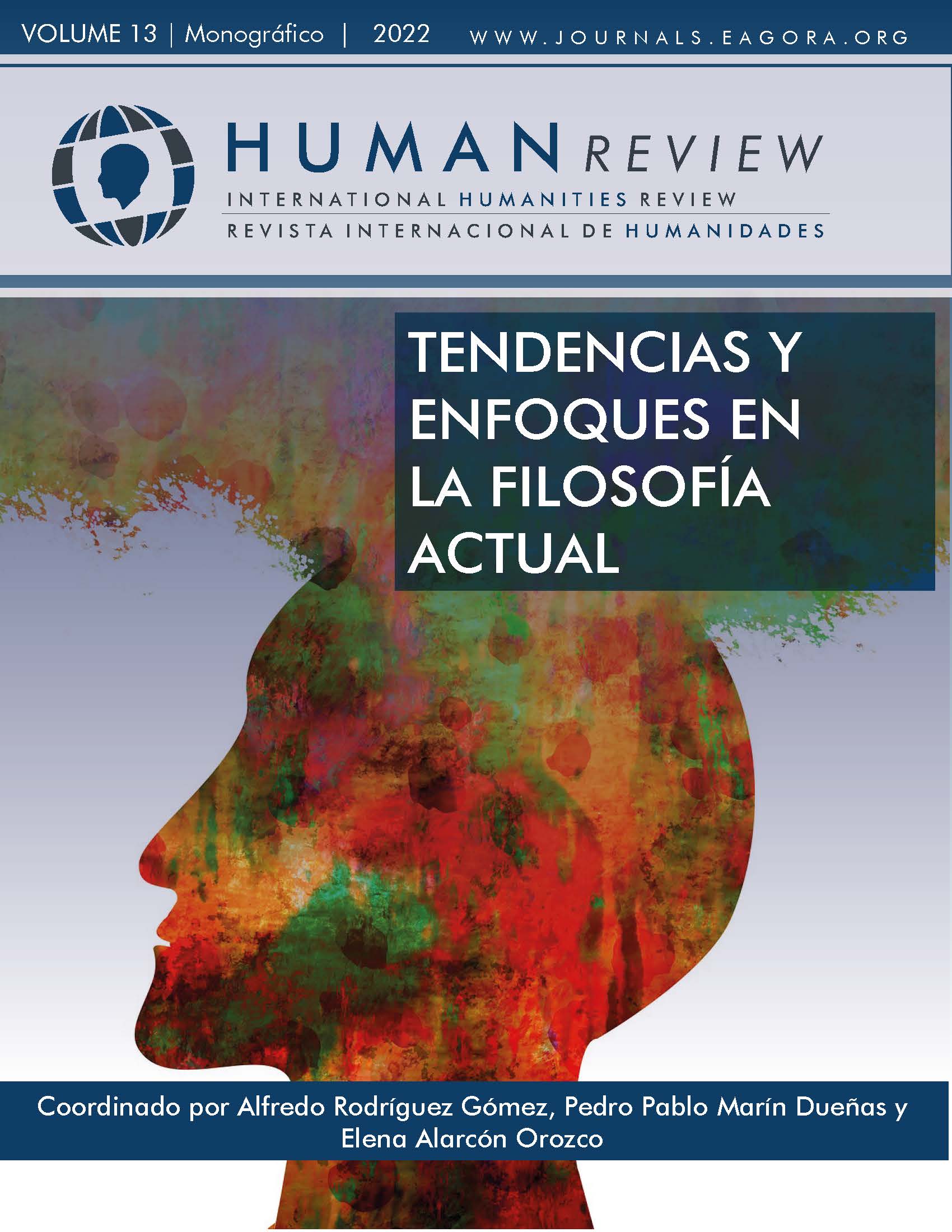Dilthey´s contribution to hermeneutics and investigative psychology
Keywords:
Philosophy of the spirit, Hermeneutics, History, Psychological research, PsychologyAbstract
Psychology today is an indisputable science, but it was not always so. Philosophers and scientists of the past considered that the study of the subjectivity of man was not science; in this frame appears the figure of the philosopher Wilhelm Dilthey. Since the generalization of the ideas of Auguste Comte, the argument of the defenders of axiomatic, deterministic and positivist truth was that the study of human subjectivity is impossible and unreliable, since it is not verifiable and much less measurable. Dilthey goes beyond Schleiermacher and proposes a Hermeneutics capable of interpreting human behavior.
References
Arzensek, L. (2018). friedrich schleiermacher´s hermeneutical aspects of translation. Phainomena, 27(104–105), 403–426. https://doi.org/10.32022/PHI27.2018.104-105.14
Berner, C., & Ramírez, D. A. R. (2021). La actitud hermenéutica. Ideas y Valores, 70(176), 177–194. https://doi.org/10.15446/ideasyvalores.v70.n176.95039
Chaves-Montero, A., & Gadea Aiello, W. F. (2018). La relación sujeto-objeto en la concepción kantiana de la ciencia. Sophía, 25, 111–130. https://doi.org/10.17163/soph.n25.2018.03
Fernández, F. (2004). Wilhelm Dilthey y las categorías de la vida: La metamorfosis historicista del apriorismo kantiano | Anuario Filosófico. Anuario Filosófico, 37(3), 869–883. https://revistas.unav.edu/index.php/anuario-filosofico/article/view/29362
García Prado, J. (1947). Apuntes para la historia de La Rioja. In Berceo (Pro & Cont, Issue 4). https://dialnet.unirioja.es/descarga/articulo/61014.pdf%5Cnhttps://dialnet.unirioja.es/servlet/extart?codigo=61014
Hidalgo, Y. D. T., & Cruz, Y. L. (2015). La hermenéutica en el pensamiento de Wilhelm Dilthey. Griot : Revista de Filosofia, 11(1), 324–341. https://doi.org/10.31977/GRIRFI.V11I1.625
Hubig, C., & Radinković, Ž. (2021). Understanding opens a wide realm of possibilities…. Humanities and Education in a Functionalized World. Filozofija i Drustvo, 32(4), 629–640. https://doi.org/10.2298/FID2104629H
Iovchuk, M., & Azzati, C. (1978). Historia de la filosofía (Progreso). https://www.filosofia.org/aut/004/hf101.pdf
Khamitov, R. M. (2018). The problem of knowledge of history in Wilhelm Dilthey’s philosophy. Vestnik Tomskogo Gosudarstvennogo Universiteta. Filosofiya, Sotsiologiya, Politologiya, 44, 131–136. https://doi.org/10.17223/1998863X/44/13
Liashenko, I. (2018). Wilhelm Dilthey: Understanding the Human World. Philosophy and Cosmology, 20, 163–169. https://doi.org/10.29202/PHIL-COSM/20/16
Lorenzo, L. M. (2011). Vida, historia y psicología en wilhelm dilthey. Topicos, 21. https://doi.org/10.14409/TOPICOS.V0I21.7537
Maas, W. P. (2010). Hermenêutica e anti-hermenêutica: Friedrich Schlegel e Schleiermacher. Pandaemonium Germanicum, 15, 18–36. https://doi.org/10.1590/s1982-88372010000100003
Mancilla, M. (2022). The art of understanding in friedrich schleiermacher hermeneutics. Utopia y Praxis Latinoamericana, 25(9), 98–106. https://doi.org/10.5281/zenodo.4110864
Mantas España, P. (2019). Why a history of medieval philosophy? John Marenbon and the untimely thesis. Anuario Filosofico, 52(2), 355–380. https://doi.org/10.15581/009.52.2.005
Manzo, S. (2016). Empirismo y filosofía experimental. Las límitaciones del relato estándar de la filosofía moderna a la luz de la historiografía francesa del siglo XIX (J.-M. Degérando). Revista Colombiana de Filosofía de La Ciencia, 16(32). https://www.redalyc.org/pdf/414/41449296002.pdf
Martinelli, R. (2018). Defining human sciences: Theodor Waitz’s influence on Dilthey. British Journal for the History of Philosophy, 26(3), 498–518. https://doi.org/10.1080/09608788.2017.1394816
Martínez Migueles, M. (2004). Ciencia y arte en la metodología cualitativa (Trillas (ed.); primera ed).
Molina, J. (2006). Dilthey y la psicologí. Persona, 0(009), 95. https://doi.org/10.26439/persona2006.n009.904
Smiljanić, D. (2018). New Phenomenology – A step forward on the path towards reconciliation between philosophy of life and phenomenology? Synthesis Philosophica, 33(2), 475–488. https://doi.org/10.21464/SP33210
Vallejos, M. Á. G. (2020). Kant and the human condition. Ideas y Valores, 69(173), 123–142. https://doi.org/10.15446/IDEASYVALORES.V69N173.64411
Van, A. (2019). Multifarious facets in the thinking of the elusive Friedrich Schleiermacher. HTS Teologiese Studies/Theological Studies, 75, 1–8. https://doi.org/https://doi.org/10.4102/hts.v75i4.5509
Zambrana, R. (2012). El legado de Hegel. Universitas Philosophica, 29(59), 15–31. https://www.redalyc.org/articulo.oa?id=409534426002

